Pharmacy on Ice: ice skating, Olympics and dresses…
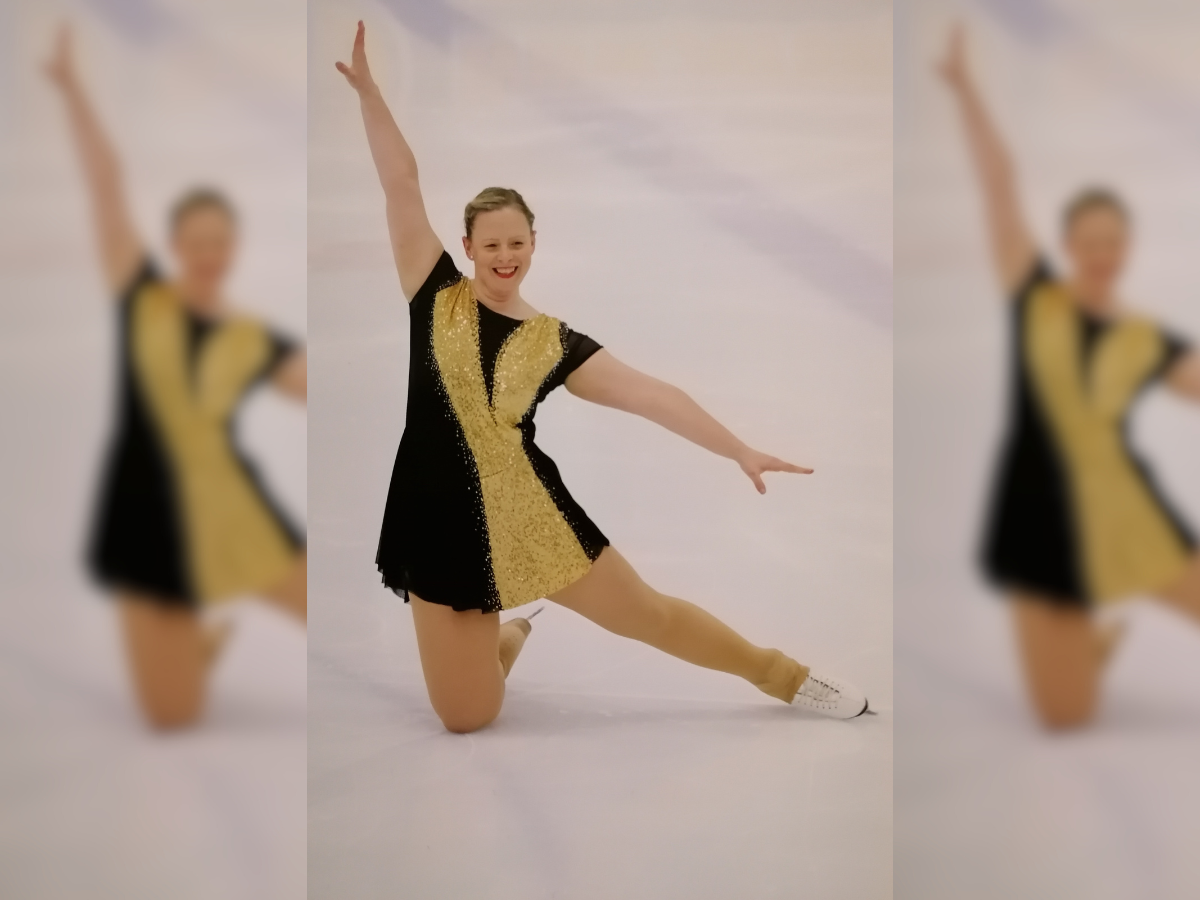
Helen Leighs “hated sports” when she was at school and was far more at home in the classroom.
“I didn’t see the point, but then as an adult, I was talking to a colleague at work, and we had been watching Dancing on Ice and we went to the local rink.”
After wanting to learn how to stop properly, do turns, spins and other “fancy things” they saw others doing, they signed up for the group lessons fifteen years ago and has not looked back since.
“I got a bit hooked. It’s one of those things you do that once you start doing it, if you love it, then you just spiral and you end up doing more and more.”
“Lifelong friends”
By daytime, Leighs, 42, is a specialist paediatric hospital pharmacist in Basingstoke and is an independent prescriber for patients in the cystic fibrosis clinics.
She has always worked in hospital pharmacy as she likes the “variety that you get”, but since getting into ice skating, she finds the rink is a break from pharmacy as “you can just go there and chill out” and not use your phone “so it’s a big escape from the world”.
“I’m there to mentally recover from my day at work, talk to some people, and relax.”
Initially going only once a week, Leighs has now met “lifelong friends” through the lessons and now trains around five to six times a week.
“It’s become my second family, and I realised how much I loved it during lockdown when we couldn’t go. They had to close the rink for two or three years, and it was heartbreaking.”
Leighs began attending training camps, including one ran by Dancing on Ice professional skater Mark Hanretty in Sheffield, and is inspired by ice dance stars Lewis Gibson and Lilah Fear.
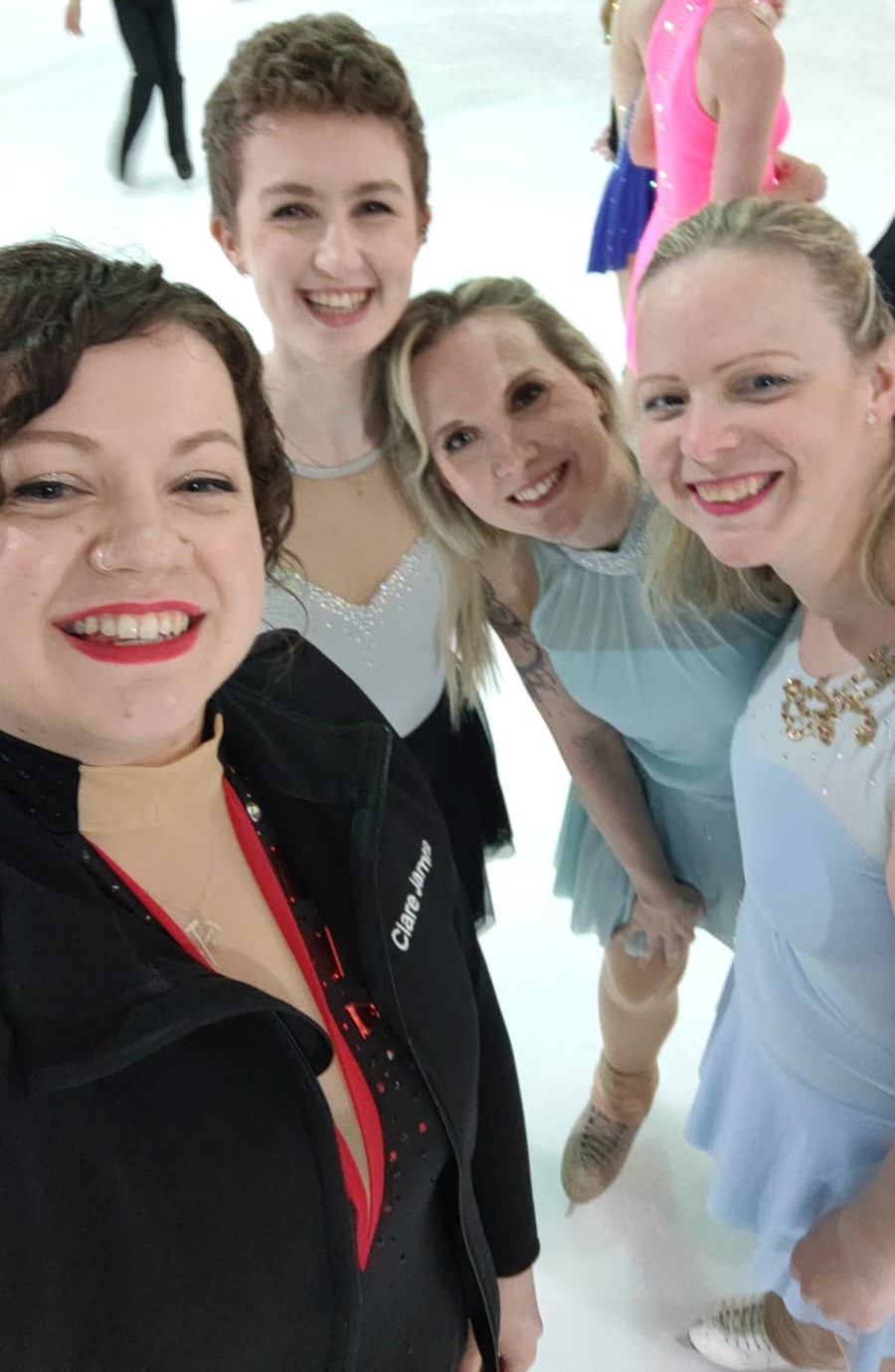
“They skate so fast and so beautifully, it’s just so amazing to watch. I also saw the world synchronised skating competition in 2020 a month before lockdown, and to see those teams skate that fast in real life is just breathtaking.”
She competes in national competitions but says there aren’t a “huge amount of adult skaters in the UK”, but she can choose the level she wants to compete in depending on how hard the jumps and spins you want to do.
Fabrics and “old people Olympics”
Leighs does both synchronised and solo ice skating. Synchronised is “more about sequences of steps in formation on the ice” and between ten to sixteen skaters create different shapes on the ice.
Solo is where you jump and spin to music by yourself on the ice for two minutes, and Leighs enters “two or three competitions a year” for this at bronze level.
She chooses “music that I can relate to” and skates to ‘You Will Be Found’ as it is about “people being lonely and finding friends, which is how I see the ice rink” as that’s where she found many of her friends.
Training hard with her friends and succeeding in competitions and leagues with the synchronised team has really helped Leighs find her community.
“Last season, we gained five places in the standings and this season we’ve got a lot of hope of even more success.
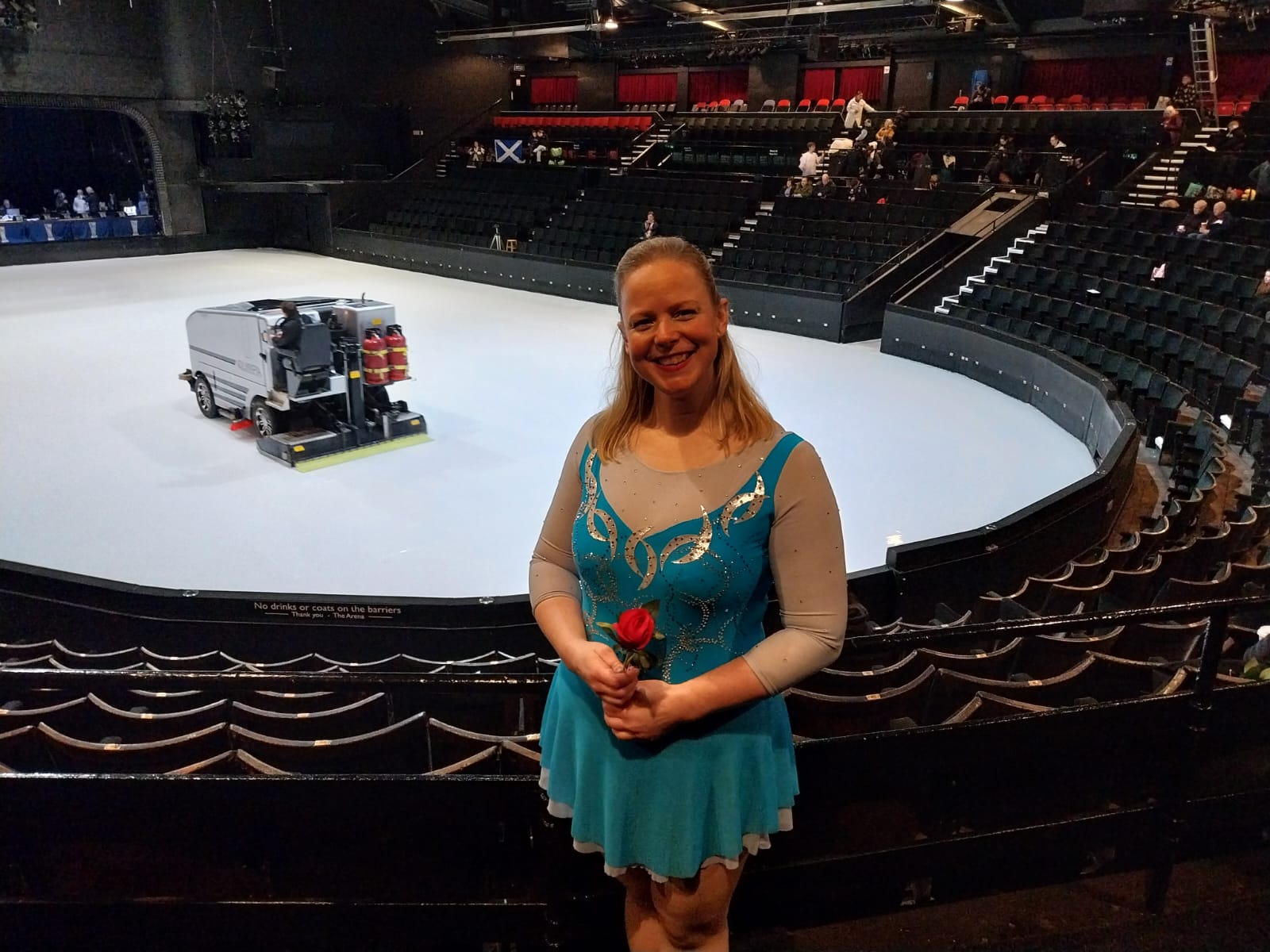
“We laugh all the time, just an hour of giggles most of the time, but sweat and blood and tears.”
Her biggest achievement was at the “Olympics for old people”, the Innsbruck 2020 Winter World Masters Games, and got her personal best, but she has also found another outlet as “a big switch off” from pharmacy.
Read more: What's behind the pharmacy counter at the Olympic Games?
Leighs started making clothes for ice skating during lockdown when she got a sewing machine.
“My first couple took a long time to do, making sure it was correct and there was a lot of adjustments. I’ve got a little bit quicker, but I still ask for help from my friends. I’ve made one dress for someone else, but they’re mostly for yourself.”
The process can take four to five months and the fabrics can cost just under £100 as Leighs does bits at a time when she can, and feels proud when she wears what she has made during competitions as not many skaters do both.
Sports volunteering
But Leighs does not always separate sport and pharmacy, as she has volunteered at international sport competitions ever since the London 2012 Olympics and Paralympics.
“I was watching The One Show and they kept putting the callout for volunteers and I thought it might be fun. I didn’t know sports pharmacy was thing, or they wanted a pharmacist.”
Read more: Healthcare worker scoops medal haul
She recalls the Olympic Village in Stratford, East London, being “really peaceful” amid athletes training or celebrating after their competitions, and was asked by London’s lead pharmacist Mark Stuart – who we interviewed back in 2012 – to go to the 2016 Rio Olympics.
This time she went to communicate with the athletes as the local pharmacists didn’t speak much English as one of the Olympics main languages, as Leighs would “counsel and talked through their medicines and treatment with them”.
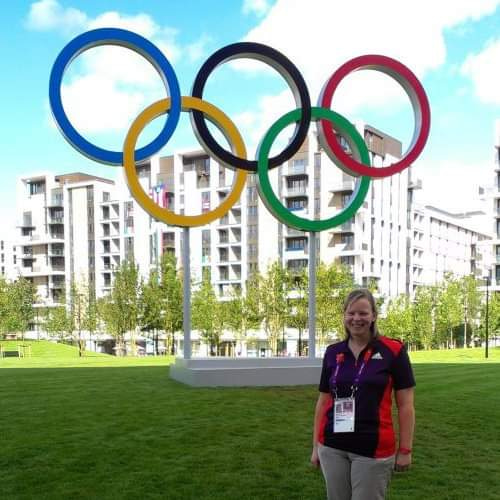
“Working abroad makes you realise how much of a world leader we are in clinical pharmacy, and the amount of respect that we receive from other healthcare professionals in the UK compared to in other countries.”
She volunteered at the Glasgow 2014 and Birmingham 2022 Commonwealth Games which felt “more cozy” on its smaller scale, and was also an anti-doping chaperone at the 2015 European Games in Azerbaijan.
Leighs managed to see some of the world’s athletes up close in this experience and spent the day with British boxer and two-time Olympic champion Nicola Adams who “was really nice, really friendly”.
She has continued to update her knowledge of sports pharmacy beyond these experiences after completing the postgraduate drugs in sport course with the International Olympic Commission eighteen months ago.
This summer, Leighs was the only international volunteer to work at both the Olympics and Paralympics in Paris, and C+D exclusively spoke to its lead pharmacist Jennifer Le Grand about running the Olympic pharmacy this month.
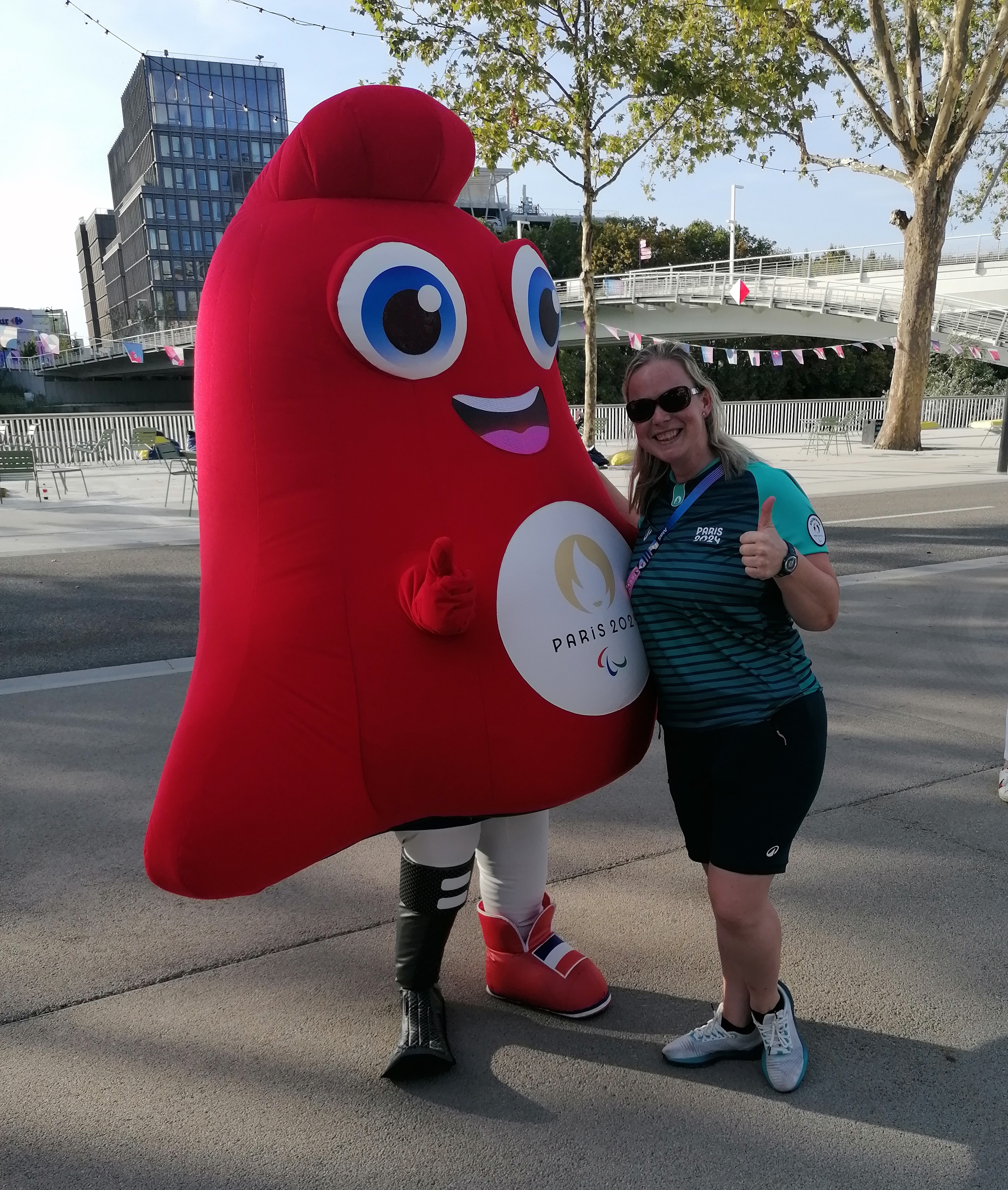
Having worked at three Olympics, Leighs says “it’s kind of halfway between hospital and community pharmacy” in how the polyclinics in the Olympic villages are run.
She says analgesics to treat injuries are one of the most common medications they focus on at Olympics pharmacies, as well as general cough and cold medicines as “when people are new living together, they share viruses”.
Read more: Ex-pharmacist wins best pub award after career change
When some athletes forget their long-term medication, they have to see what’s available in the host country and often have to do a private prescription that they can take to a local community pharmacy.
“It allows you to use your clinical knowledge a bit more which is really satisfying.”
But Leighs has never volunteered at the Winter Olympic Games despite her love for ice skating, and despite working at three others she says it is still hard to be chosen.
“There’s a lot of volunteers that apply. I have just put in my application for the Winter Olympics in Milan for February 2026 but they only want 15,000 volunteers and there’s normally triple, quadruple that apply.”
“I’d really love to go to the Winter Olympics, that’s my next goal.”



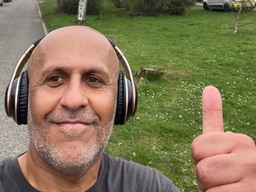

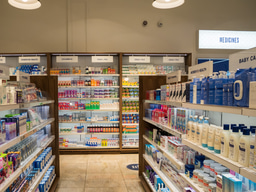
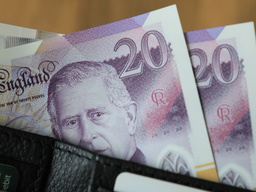
Please sign in
If you are a registered user on C+D Community, please sign in